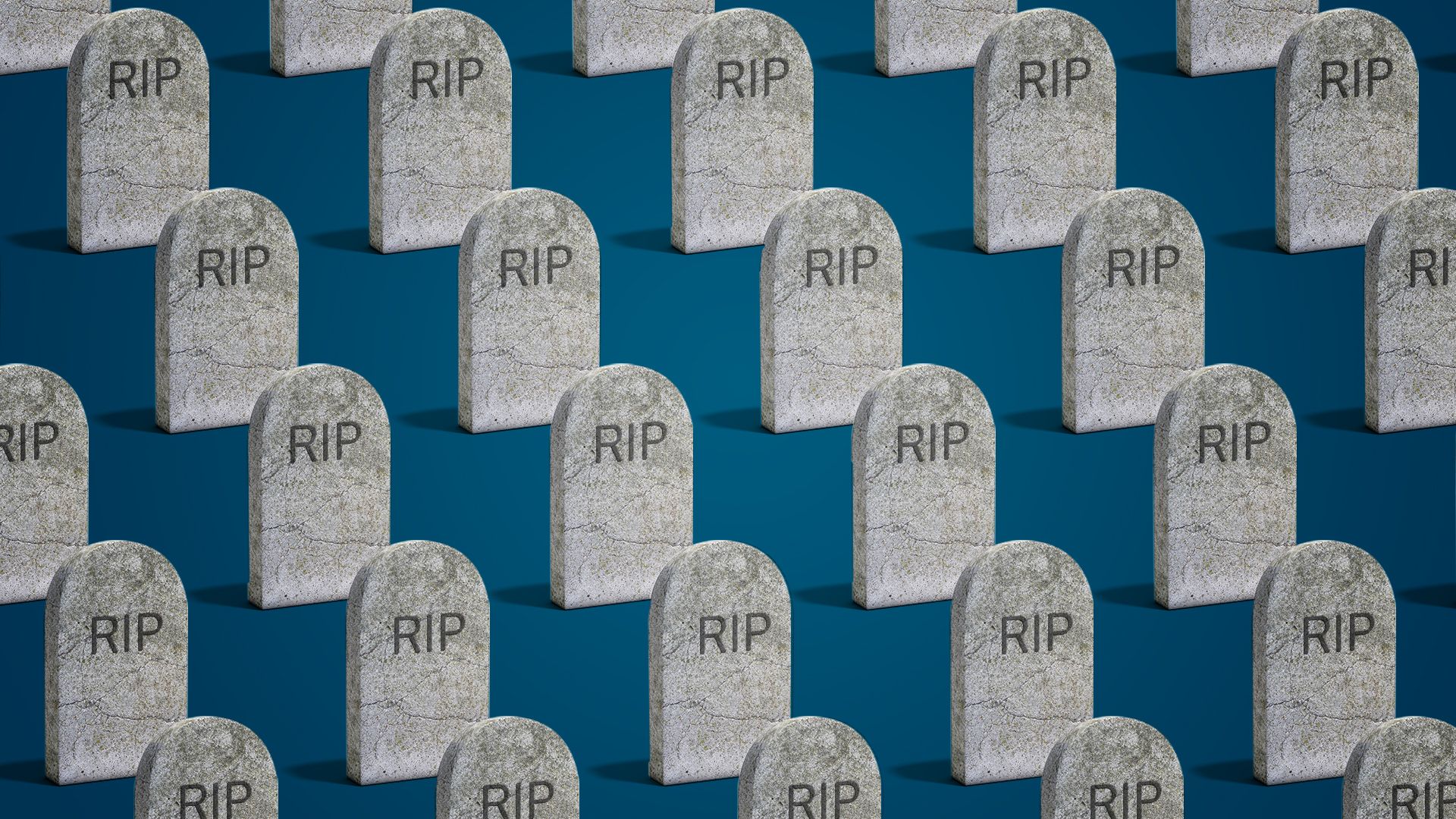America's funeral homes buckle under the coronaviru

Illustration: Aïda Amer/Axios

EricaPandey
AXIOS
Morgues, funeral homes and cemeteries in hot spots across America cannot keep up with the staggering death toll of the coronavirus pandemic.
Why it matters: The U.S. has seen more than 10,000 deaths from the virus, and at least tens of thousands more lives are projected to be lost. The numbers are creating unprecedented bottlenecks in the funeral industry — and social distancing is changing the way the families say goodbye to their loved ones.
"This feels like three years of funerals condensed into a month," says Patrick Kearns, a funeral director in Queens. "So many of us were worried about the front end of this virus. Unfortunately, the back end of it is something people hadn't thought about."
What's happening: Morgues and funeral parlors in cities hit hardest by the pandemic are overwhelmed, with three or four times as many bodies as they're built to hold. While experts tell us the availability of burial plots at cemeteries is not scarce, burials and cremations are being delayed.
FEMA has asked the Pentagon for 100,000 military-style body bags to prepare for the surging death counts across the U.S.
States like New York and Massachusetts are setting up temporary morgues at college campuses and outside hospitals and nursing homes as existing facilities overflow.
But the supply is running out. Med Alliance Group, an Illinois company that provides refrigerated trailers to serve as overflow morgues during natural disasters and other crises, tells Axios it's been out of stock since early March.
Some funeral homes are attempting to help. Kearns says he has turned a chapel into a makeshift morgue using air conditioning units.
New York City councilman Mark Levine said the city was considering a grimmer solution: a mass grave site in a public park to bury the dead temporarily until funeral homes can work through the bottleneck.
New York Gov. Andrew M. Cuomo later shot the idea down, and Levine later tweeted that he had received "unequivocal assurance" from city officials that any "temporary interment" would not happen in the city parks.
Kearns tells Axios his business saw 15 funerals in the first half of March, compared with 50 in the second half. He's already seen around 50 cases in the first five days of April, he says.
"We’re at a point where I can’t serve anyone anymore. We need to put everything on pause," he says. "To have to tell a family that you can’t help them? It goes against grain of who we are as funeral directors. We're wired to help people."
Funeral directors around the country are also worried about shortages of masks, gowns and other personal protective equipment as they tend to the bodies of the dead.
And funerals themselves are rapidly changing. Funeral homes across the U.S. are limiting services to immediate family members, enforcing social distancing, and even holding virtual ceremonies.
"How do you tell someone they can't come to a funeral?" says Mike Zuzga, a funeral director in a Detroit suburb. "We jumped from going to funerals to now live-streaming funerals overnight."
Live-streaming funeral services isn't new. Around 20% of funeral homes — including Zuzga's — offered it as an option last year, per National Funeral Directors Association.
But families have rarely asked for services to be recorded or streamed, Zuzga tells Axios. Now, almost every family is doing so.
The bottom line: Grieving during the pandemic will continue to be unusually painful, says Heather Servaty-Seib, a professor at Purdue University who studies grief and death.
"We want body disposition to happen in a timely way — It's very personal, and it's very intimate," she says. "Being able to physically see the person's body can be a very important part of the grieving process."
But calls and video chats can be powerful during these times, says Servaty-Seib. "I want to encourage people to think more creatively or more openly about how they memorialize."
No comments:
Post a Comment